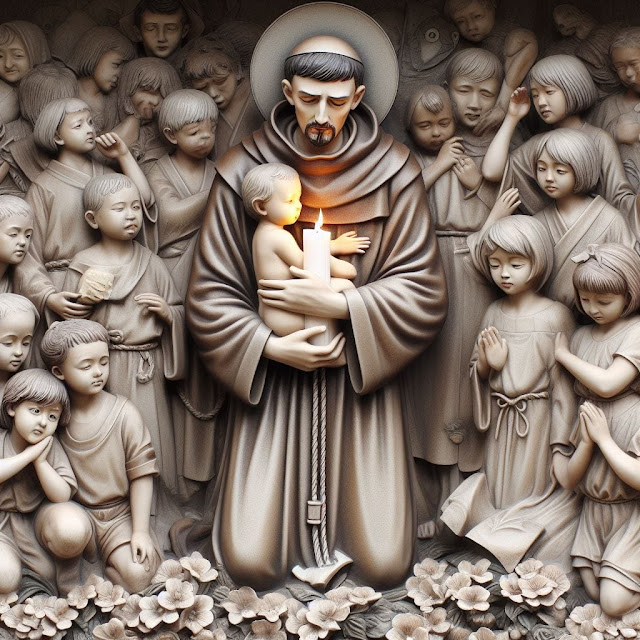Holy Innocents
When Herod realized that he had been deceived by the magi, he became furious. He ordered the massacre of all the boys in Bethlehem and its vicinity two years old and under, in accordance with the time he had ascertained from the magi. Then was fulfilled what had been said through Jeremiah the prophet: “A voice was heard in Ramah, sobbing and loud lamentation; Rachel weeping for her children, and she would not be consoled, since they were no more.” ~Matthew 2:16–18
Herod the Great, King of Judea, was gripped by paranoia and insecurity. He jealously clung to his power and ruthlessly attacked anyone whom he saw as a threat, including his immediate family. In 35 B.C., he drowned his brother-in-law who was the High Priest at that time, fearful of his popularity and influence over the people, making it look like an accident. In 29 B.C., Herod began to suspect his beloved wife, Mariamne, of infidelity and plotting to take over the throne. She stood trial and was executed. Mariamne’s mother and grandfather were also executed. In 7 B.C., Herod executed two of his own sons, Aristobulus and Alexander, and in 4 B.C., Herod killed his son Antipater. Every execution was the result of Herod’s paranoid delusion that the person was plotting against him and seeking his throne.
Shortly after Jesus’ birth, the second chapter of the Gospel of Matthew relates the story of the Magi, the flight into Egypt, the Massacre of the infants, and the return of the Holy Family to Nazareth. We read, “When Jesus was born in Bethlehem of Judea, in the days of King Herod, behold, magi from the east arrived in Jerusalem, saying, ‘Where is the newborn king of the Jews? We saw his star at its rising and have come to do him homage’” (Matthew 2:1–2). Given Herod’s propensity for violence toward those whom he saw as a threat, he was the last person with whom the Magi should have shared their news regarding the “newborn king of the Jews.”
Upon hearing about the newborn king, Herod became greatly troubled and gathered the chief priests and scribes to learn from them where the promised king would be born. They answered him, “In Bethlehem of Judea…” (Matthew 2:5). Herod then set his wicked plan into motion. He called the Magi back, asked when the star first appeared, and ordered them to find the child and bring the babe to him so he could also do Him homage. The Magi did seek out and find the Christ Child, prostrated themselves before Him, did Him homage, and gave Him gifts of gold, frankincense, and myrrh. Afterward, the Magi were warned in a dream not to go back to Herod, so they returned to their homeland in the East by a different route.
Foiled in his attempt to kill the newborn king, Herod had to move to a more drastic plan. “When Herod realized that he had been deceived by the magi, he became furious. He ordered the massacre of all the boys in Bethlehem and its vicinity two years old and under, in accordance with the time he had ascertained from the magi” (Matthew 2:16). According to the early liturgies of the Eastern Churches, between 14,000 and 144,000 boys were massacred. However, those high numbers might only be symbolic. Given the fact that Bethlehem was a small town, possibly with fewer than 1,000 inhabitants, the number of boys under the age of two might have been closer to a couple of dozen. One legend states that Herod even killed one of his own sons at that time. The same legend continues that when the Roman Emperor Augustus heard of the act, he stated, “It is better to be Herod’s pig than son.”
Regardless of the actual number of boys killed, they are now honored as the first martyrs for Christ. These children were the first to die on account of Christ. Of these infants, Saint Augustine said, “Herod accordingly kills many little children, in his determination to bring about the death of just one. And while he carried out this most celebrated and cruel slaughter of so many innocents, he was himself the first one he slew by such an utterly wicked deed” (Sermon 373).




Comments
Post a Comment